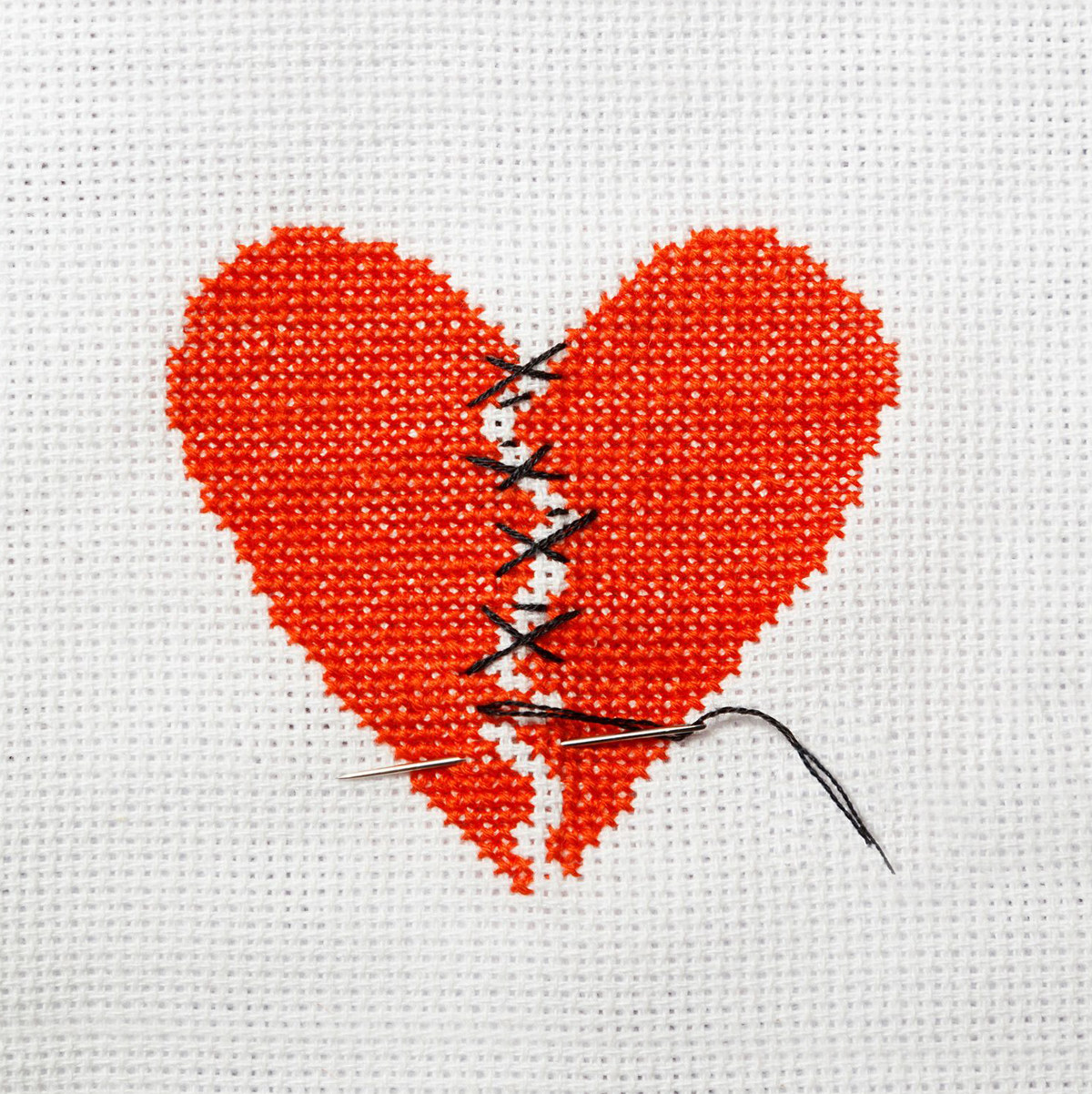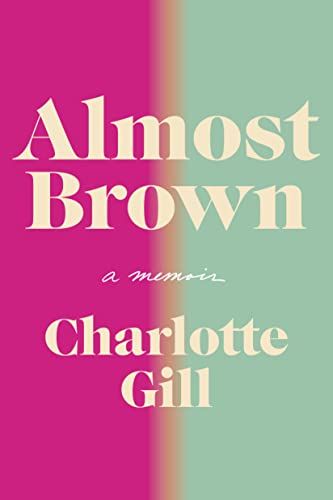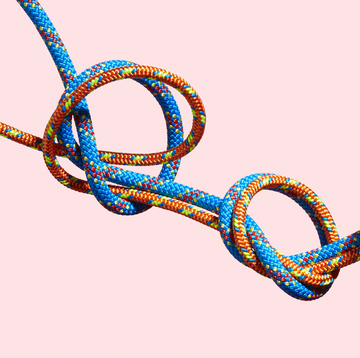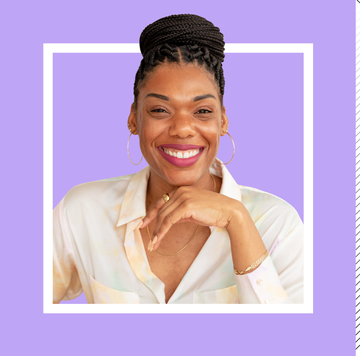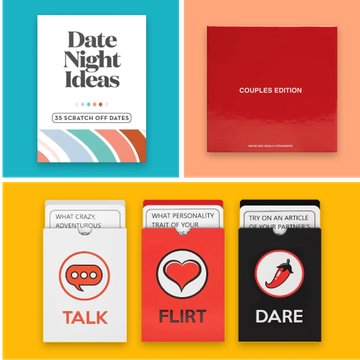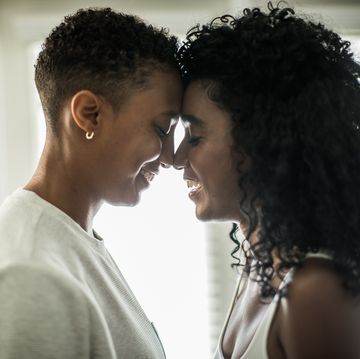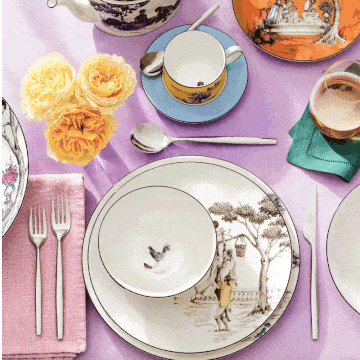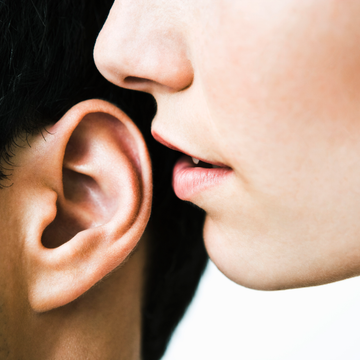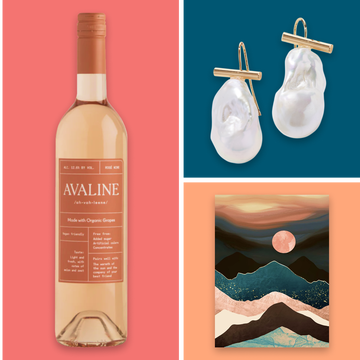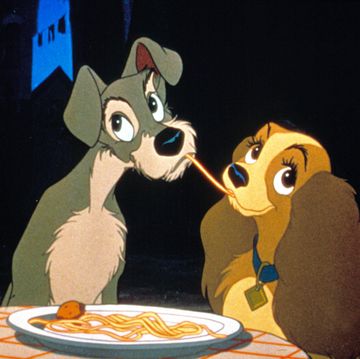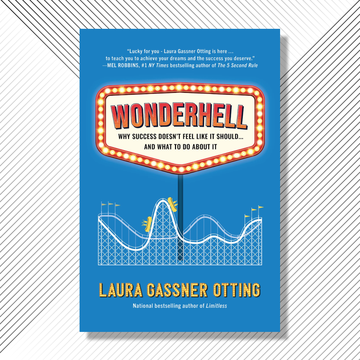My father loves restaurants with white tablecloths, white-haired waiters in bow ties, and leather-bound menus the size of the Ten Commandments. He likes lobster thermidor and filet mignon and potatoes dauphinoise as Thurston Howell III or Blake Carrington might enjoy these fusty delicacies after a long day of counting their millions.
And so we’re out for dinner at his favorite steakhouse, at an outdoor four-top in the courtyard. Dining out is one of our favorite things to do together, despite the fact that for 20 years, we didn’t talk at all. Not sporadically. Not begrudgingly. In all that time, we didn’t exchange a single word.
My father is an 86-year-old Indian man. He’s a compact person, even more so in senior citizenship, but he makes up for this with wardrobe excess. Tonight he’s wearing a silk shirt and a brass-buttoned blazer with a purple pocket square, plus an assortment of gold jewelry. It’s over-the-top for a casual supper, but he pulls it off the way people with flamboyant style win the day, by owning it one hundred percent.
More From Oprah Daily

My dad is a retired physician, and despite having taken the Hippocratic oath, he may be responsible for shortening the lives of countless food-and-beverage professionals throughout his dining career. He does not want to be introduced to his server by name. He cares not one iota about the cheese’s life story nor the Holstein that produced the milk. I’ve seen him send back entrées, coffees, bottles of wine, often for no discernible reason other than it was not what he expected, or it arrived at the wrong time or in the wrong kind of vessel.
For some reason, the good people of this establishment let him get away with it all. He’s been coming here for many years and has grown a friendship with the owners. He’s like family, they tell me almost every time I’m here.
But he has a family, I think. Or had one, anyway.
**
Does anyone really need a reason to fall out with one’s relations? Family can be forgiven for its dysfunction, I think. The real wonder is that we function at all. It’s the biological proximity, the enforced togetherness. Kids are born too different from their genetic precursors, or too alike—a mirror, a clash of sameness. On the parental side, it’s the expectations, the obligation, the crushing weight of keeping the little people alive. The intensity is hot and dangerous, like the slopes of a molten volcano, like hell.
My parents met in the ’60s in London. They were both in med school. My dad was a brown, turban-wearing immigrant from a former colony, and my mother was English and as white as a porcelain teacup. The world wasn’t exactly ready to embrace interracial love, and their romance basically blew up the family tree. It resulted in my dad’s disownment, a lot of immigration paperwork, three beige kids, and eventually a move to upstate New York, where they started all over again.
They had many things in common, including a profession and an abiding love of British things—tea and marmalade and table manners. Most of all they shared us, their children, along with self-imposed exile. But their relationship, you could say, was compromised from the start. My dad was blustery and temperamental as a younger man, allergic to the indignities of housekeeping and child-rearing, tragic with money, and not averse to corporal punishment when it came to his kids. Some of this was the way he’d been raised, informed by patriarchal customs that whiffed of the ancestral village but had no place in a modern, egalitarian home.
He was no normal, Western dad as I’d come to appreciate them from sitcom TV. He didn’t do rumpled shirts, nor affectionately oblivious parenting. He demanded exceptionalism from his brood, especially when it came to academic performance. Only we’d become naturalized kids, grass-stained and junk-food-addicted, more interested in the unfettered pleasures of the American outdoors than doing our geometry homework. We failed him often.
I was scared to death of him for much of my childhood. This was slowly replaced by a smoldering adolescent fury—an emotion I inherited from him, naturally. His parenting style was oppressive, according to my perception. It sought to preserve my reputational innocence—if not innocence itself—by forcing my burgeoning womanhood back into the bottle. I’d once run amok with the kids from my neighborhood, and we’d roamed the streets, the trails through the woods. But once I became a teenager, all of that ended, as if puberty was a punishment unto itself. My father became suspicious of my autonomy—of boys, my girlfriends, the dark. And so I became an indoor daughter, consigned to homework and chores, held back from the freedoms he’d brought us to this country to enjoy.
When I was 16, my parents’ marriage dissolved. It was a long time coming, most of all for my long-suffering mother, who’d indulged my father’s idiosyncrasies with the patience of a blighted saint. Take your pick of the usual reasons. It all came down to betrayal, as it does so often for millions of lovers who transition from pillow talk to communicating through their lawyers. My parents divorced, not for any standout reason except one. They’d come from worlds apart.
After that, I blamed my dad for crashing our family security, as shaky as it had been. I couldn’t be anywhere near him without getting lost in a whiteout of resentment. But I didn’t want to live that way. The feeling was like rust for the soul. I didn’t have a language to explain it back then, but I sensed I couldn’t go forward, couldn’t build anything for myself with my father in my life. But mostly I felt his post-divorce absence once my mother gained custody—the dad I detested but still desperately missed for the person he might have been.
In the two decades that followed, I never once reached out to him, and he never called me, either.
**
Estrangement. That’s the common term for what happens to parents and children when the bonds between them dissolve and they discontinue knowing one another. According to research, parent-child estrangement is not at all uncommon, even if nobody wants to talk about it. The break is more likely to be initiated by the child, who is more often disconnected from a father. Surprisingly, to me anyway, most of us reconcile—even if it takes half a lifetime. But I don’t really care for the word estrangement. It’s too big and blunt. I don’t like forgiveness, either. It’s flat, too small to describe an odyssey that unfolded for me not in a moment but with stages, detours, and backtracks.
When I was a teenager, I said I’d rather light my own hair on fire than allow my father back into my life. But fate laughs at certainty. It abides no bombastic forevers.
In my 20s, forgiveness came for me with its hands in its pockets, its head bent low. When acquaintances asked about my dad, I felt shame. We were nothing, I was forced to admit, as their pity passed over me like the flaps of a car wash. As a result of our distance, I was also cut off from the paternal side of my family. Friends sometimes confessed that they thought of me as an orphan.
In my 30s, forgiveness came for me at weddings and funerals. I watched stern, serious fathers melt down in tears as they walked their daughters down the aisle. I attended memorials for men who’d been loved by hundreds of friends and relations, who eulogized them in open grief. They’d be missed on the daily for decades to come.
Forgiveness came for me like an itch beneath the bandage. I’d made mistakes of my own by the time I approached middle age. I’d learned how easy it was to fail with spectacular abandon. I came to see my dad as a flawed, well-meaning human, born of flawed, well-meaning parents, just trying to make a go of it in a world in which much was beyond his control.
If my willingness had arrived, the opportunity took a little longer. My dad and I eventually reconnected at a family wedding to which we’d both been invited. He appeared before me, regally dressed as always, but reduced, defused by age. I was taller than he remembered, more oblong at the midline, with graying roots, a little less lean and mean. We were familiar strangers.
In the ensuing months, we rekindled a tentative friendship that looked nothing at all like how we used to be. We reminisced about our family years while militantly avoiding certain topics, chiefly the reasons for our estrangement in the first place. We started fresh, with the hovering awareness that we could revert with one misstep. My dad and I rediscovered our shared fondness for dressing up and dining out. He let me tease his eccentricities now that I was free from their consequences. He was a kinder, happier person in his twilight years, tenderized by some hard-learned lessons. I saw that our days were numbered.
He continues to drive me nuts in ways old and new. Whenever I venture out for dinner with him, it’s a thrill, an event charged with danger and surprise. I never know what’s going to happen. Often, after we are seated, I disappear to the restroom in hopes of intercepting our server at the wait station. Here I apologize in advance for the occupational hell that is about to unfold, and I promise to compensate them for their woes, if such a thing is possible.
When it’s time to relinquish our table, my father will insist on greasing our waiter’s palm. Or he’ll leave a few bills behind on the tray next to his untouched Ovation mint. Perhaps we stand outside on the wet pavement beneath an umbrella, waiting for my spouse to retrieve the jacket he’s left behind expressly for the purpose of revising the tip. My father will say he had the best time. The restaurant, the food, the company, it was perfect. This kernel of memory will build into a burnished reminiscence, which he’ll retell for many months. Why I do this for him, this symphony of secret workarounds, I’m never fully convinced until this one moment at the end that makes him so happy.
In our new routine, I play the role of his daughter, but I’m more like his partner in crime. I laugh at his jokes and indulge his grumpy moods. I refuse to get on his case for staying up late and smoking cigars or drinking Coke for breakfast or backing his car into bollards. He refuses to take the facts of aging, or even his own mortality, lying down. In this campaign to squeeze every drop from life, I’m his willing accomplice.
I didn’t choose forgiveness. I’m not sure I’d recommend it even now, since the package does not guarantee forgetting, let alone apologies. But what’s family without a little adventure, a little chaos? What’s life without the collateral benefits of changing one’s mind?
Charlotte Gill is a bestselling and award-winning writer of fiction and narrative nonfiction. Ladykiller, her first book, was the recipient of the Danuta Gleed Award for short fiction. Eating Dirt, a tree-planting memoir, was a #1 national bestseller in Canada. Her work has appeared in Vogue and Hazlitt. Gill teaches writing in the MFA program in creative nonfiction at the University of King’s College and is the Rogers Communications Chair of Literary Journalism at the Banff Centre for Arts and Creativity. She lives in British Columbia.
